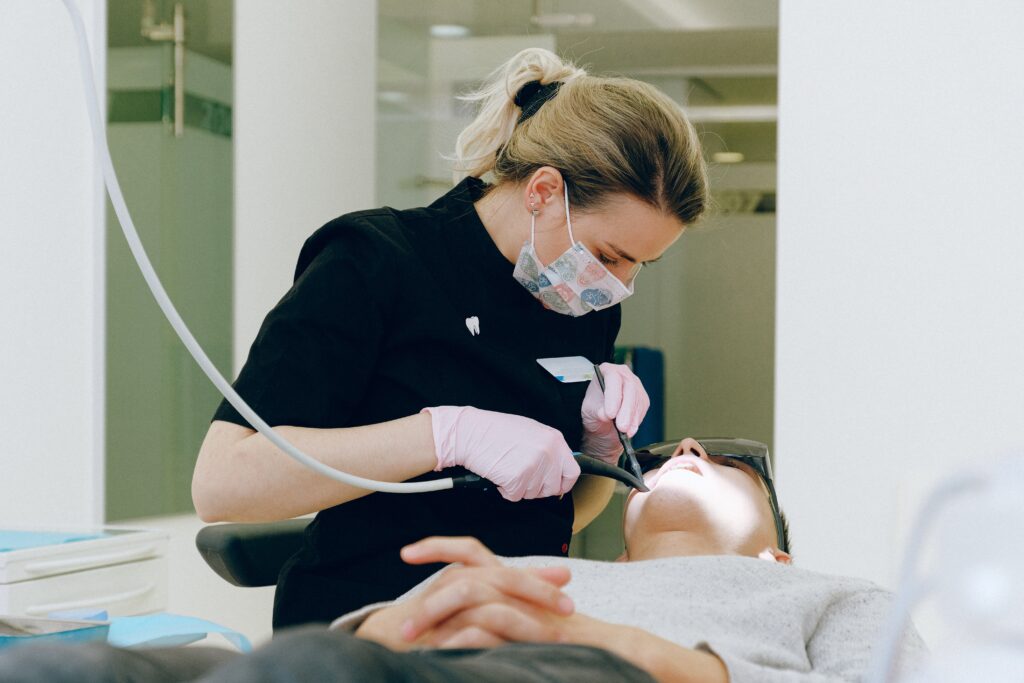Research shows that there are approximately 2,500 cases of oral cancer a year in Australia. This version of cancer can be deadly and is thought to kill more people than cervical cancer or malignant melanoma.
Oral cancers occur when cells in the mouth or lips undergo DNA mutations, which cause them to continue growing and dividing abnormally, forming a tumor. These mutations are not well-understood, but risk factors such as smoking, heavy alcohol consumption, poor diet, and exposure to certain viruses have been identified. The most common type of oral cancer is squamous cell carcinoma, which originates in the flat, thin cells lining the mouth and lips. Over time, oral cancer cells can spread to other areas of the head and neck or the rest of the body. (1)
This also refers to cancers that develop in the mouth or the back of the throat, including the tongue, gums, and throat tissues. It is responsible for around 3% of all cancer diagnoses in the US each year, with approximately 53,000 new cases annually. Oral cancer is more common in individuals over the age of 40, and affects more men than women, with a ratio of over 2:1. (2)
Oral cancer is likely to affect your tongue, lips, tonsils, soft palate, salivary glands, and even the back of your throat. In advanced stages of oral cancer, you will experience severe and chronic pain, disfigurement, and a loss of function of various sections of your mouth. Oral cancer has the lowest survival rate of all the major cancers. Survivors often face social isolation as their confidence is shattered and they become reclusive. This places a huge amount of pressure on their loved ones.
Causes of Oral Cancer
It is important to understand the risk factors and causes of oral cancer because this knowledge can help individuals take steps to reduce their risk of developing the disease. Individuals can decrease their chances of developing oral cancer by avoiding or minimizing exposure to risk factors. Here are few of the most common causes of oral cancer: (2)
- Age: Oral cancer risk increases with age, with most cases occurring in individuals over the age of 40. This may be partly due to accumulated exposure to risk factors such as tobacco and alcohol use over time.
- HPV: Certain types of the human papillomavirus (HPV), which is a sexually transmitted infection, have been linked to the development of oral cancers. In particular, the HPV-16 strain has been found to be associated with a higher risk of oral cancer.
- Sun Exposure: Prolonged exposure to the sun’s ultraviolet (UV) rays can increase the risk of developing lip cancer. This is more common in individuals who spend a lot of time outdoors without protecting their lips from the sun, such as farmworkers or fishermen. Sunscreens and lip balms with SPF can help protect against this type of cancer.
- Tobacco and Alcohol Use: Tobacco use of any kind (cigarette smoking, cigar smoking, pipe smoking, chewing tobacco, etc.) is one of the most significant risk factors for developing oral cancer. Tobacco contains harmful chemicals that can damage DNA and other cellular structures, leading to the development of cancerous cells. Heavy alcohol use is also a risk factor for oral cancer, as it can damage the cells in the lining of the mouth and throat. The combination of tobacco and alcohol use is hazardous, as it dramatically increases the risk of developing oral cancer.
Other potential risk factors for oral cancer include poor oral hygiene, a diet low in fruits and vegetables, a weakened immune system, and a family history of cancer. It’s important to note that some people who develop oral cancer may not have any of these risk factors, while others with one or more of these risk factors may never develop the disease. Therefore, it’s crucial to maintain regular dental checkups and to speak with your healthcare provider about any concerns or symptoms related to your oral health.
The Importance Of Early Detection
The low survival rate is mainly due to the fact that the disease goes undetected for a long period. That means it is already advanced when treatment starts. Conversely, when it is detected early survival rates improve dramatically and there is less likelihood of disfigurement and social isolation.
Early detection of oral cancer is crucial because it increases the chances of successful treatment and can significantly improve the patient’s quality of life. When oral cancer is detected at an early stage, it is typically easier to treat and has a higher cure rate. Treatment options may include surgery, radiation therapy, or chemotherapy, depending on the stage and location of the cancer. (2)
If oral cancer is not detected until it has progressed to a more advanced stage, treatment may be more complex and may involve more extensive surgery, radiation therapy, or chemotherapy. In addition, advanced oral cancer can significantly impact a patient’s quality of life, affecting their ability to eat, speak, and swallow. (3)
How To Detect It Early
The best way to detect oral cancer early is to have a regular check-up with your dentist. A dentist, such as this dentist Narre Warren, is trained to spot irregularities in your mouth. They will spot the lesions before you do and can give you an early diagnosis.
This dramatically increases your chances of survival.
However, it should be noted that many people don’t visit a dentist every year. While you should make an effort to do so, it is also imperative that doctors perform regular checks, specifically on those at higher risk.
If you notice any of the following symptoms you should get them checked, don’t wait for your next appointment.
- A lump in your neck
- Teeth becoming loose
- Speech issues
- Bleeding and numbness in your mouth
- Difficulty swallowing
- Sores on your lips that don’t heal
- White or red patches in your mouth
Your dentist or doctor will check for you and do a biopsy if necessary, it’s the only way to know for certain if you have oral cancer.
Prevention Techniques
The first thing to note is that regular appointments with your dentist won’t prevent oral cancer but they will help with oral hygiene and early detection.
You can reduce your risk of oral cancer by stopping smoking, this is even more important if you chew tobacco.
Brushing properly and twice a day will also help to prevent infections. As Human Papilloma Virus is one of the main causes of oral cancer keeping infections away is a good idea.
You will also find that exercising regularly boosts your immune system and reduces your risk of all types of cancer.
Alongside this, it is important to consider your diet. Avoiding processed foods and including lots of beans and dark green vegetables will also boost your immune system and reduce the chances of you contracting oral cancer.
You can also self-examine every month. Simply look in your mouth and feel the back and sides of your tongue to ensure there are no strange bumps or anything of concern. If you see or feel anything, get it checked as soon as possible.
References:
(1) https://www.mayoclinic.org/diseases-conditions/mouth-cancer/symptoms-causes/syc-20350997
(2) https://www.nidcr.nih.gov/health-info/oral-cancer
(3) https://www.cancer.org.au/cancer-information/types-of-cancer/mouth-cancer



